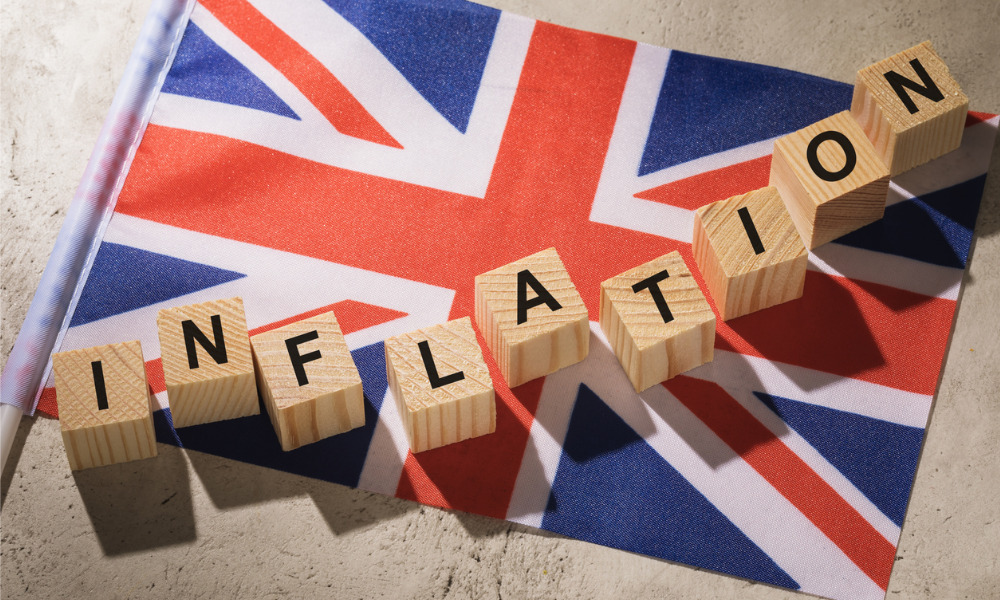Businesses react…

UK inflation rose faster than expected with the Consumer Prices Index (CPI) leaping to a 10.1% annual increase in July versus the consensus forecast of 9.8%.
On a monthly basis, July’s CPI rose by 0.6%, with food prices making the largest upward contribution to the change in CPI annual inflation rates between June and July 2022. Like in the previous two CPI releases by the Office for National Statistics (ONS), this growth recorded a new 40-year high for inflation. The previous high of an 8.4% annual increase was recorded in March 1992, during the early 1990s recession.
The Bank of England (BoE), which hiked the bank base rate by 0.50% to 1.75% earlier this month in an attempt to control rising prices, has predicted that inflation will rise even further to 13%.
“Inflation is soaring even higher, and we have all come to accept that matters will get worse before they get better,” Chieu Cao, chief executive at financial wellbeing platform Mintago, said. “Ultimately, there is no quick fix to the current financial situation and the issues that are causing the cost-of-living crisis will remain in place for some time.
“That said, aside from pay rises, there are other ways in which employers can better support their employees to ease the financial stress that many are under.”
Paul McGerrigan, chief executive at fintech brokerage Loan.co.uk, stressed the need for stability and decisiveness on the part of government leaders.
“Until the conflict in Ukraine is definitively on its way to resolution, and stability returns to the flow of materials around the globe, we are in for a further tough ride and there are tough decisions to be made by the government and by many millions of households across the UK,” he said.
Mohsin Rashid, co-founder of ZIPZERO, pointed out that the lack of action being taken to address the cost-of-living crisis becomes more concerning every time these monthly figures are published.
“We need a long-term collaborative strategy between government, energy providers, and retailers,” he added.
However, for Atul Bhakta, chief executive at eCommerce firm One World Express, businesses have been forced to shoulder the weight of many tough decisions in recent years.
“Now they are faced with a choice between passing price rises on to customers or trying to protect customers and letting their own finances suffer,” he said. “Clearly, strong leadership is needed from the government. Businesses need clarity on and confidence in the path forward, so they can respond effectively to short-term headwinds.
“Naturally, this is not an issue that can be resolved overnight – all of us will feel the pinch to some degree. Today’s figures underline the importance of providing certainty to businesses for today, so they can step more confidently into tomorrow.”
Read more: Inflation, low affordability and the impact on the mortgage market.
From a mortgage advice point of view, Jonathan Burridge, founding adviser at hybrid mortgage adviser We Are Money, advised clients to act as early as possible if their rate is coming to an end.
“There is a view that we have seen all the base rate movements for a while, but the market is uncertain and there is still plenty of risk of further rises,” Burridge said. “With more and more lenders providing offers valid for six months on remortgages, it is possible to start planning seven to eight months ahead of the approaching end date of an existing deal.
“Look at your unsecured debts that are on variable rates, like credit cards and overdrafts. It could be a good time to consider repaying these from savings or by consolidating into one new fixed rate loan. If costs are starting to bite, can you change some of your existing contracts, extending the term or moving to a fixed rate that might reduce your costs or prevent them from rising?”
Lewis Shaw, founder of Mansfield-based Shaw Financial Services, added that anyone taking out a new mortgage needs to establish what future costs might look like to avoid getting themselves into financial hardship.
“If you already have a mortgage, it’s about acting sooner rather than later and possibly extending the term of your mortgage to free up more disposable income if you’re already stretched,” Shaw said.
ONS said the rise in inflation this month reflected price hikes across many parts of the basket.
Food and non-alcoholic beverage prices rose by 2.3% between June and July, taking its annual inflation rate to 12.7% in July. The annual rate for recreation and culture was 5.6% in the year to July 2022, up from 4.8% in June; while prices for housing and household services increased by 9.1% in the year to July, from 8.9% in the previous month.
Prices for miscellaneous goods and services increased by 4.0% in the year to July 2022, up from 3.1% in June. Restaurant and hotel prices rose by 9.0% last month, up from 8.6% in the month prior. The annual increase for transport was 15.1% in July 2022, down from 15.2% in June.
Meanwhile, prices for clothing and footwear items fell by 1.5% between June and July 2022, compared with a larger fall of 2.0% in the previous year.



